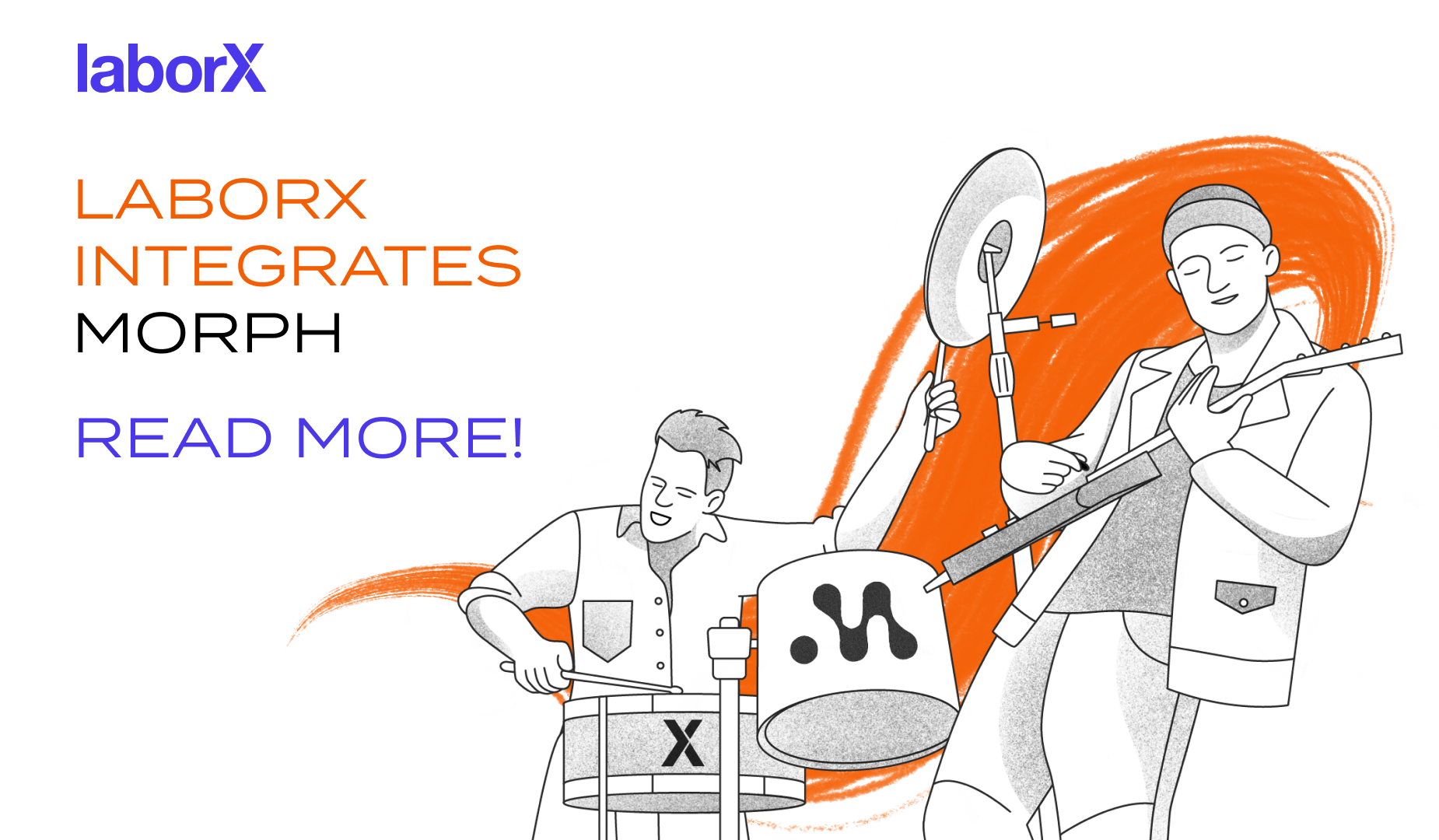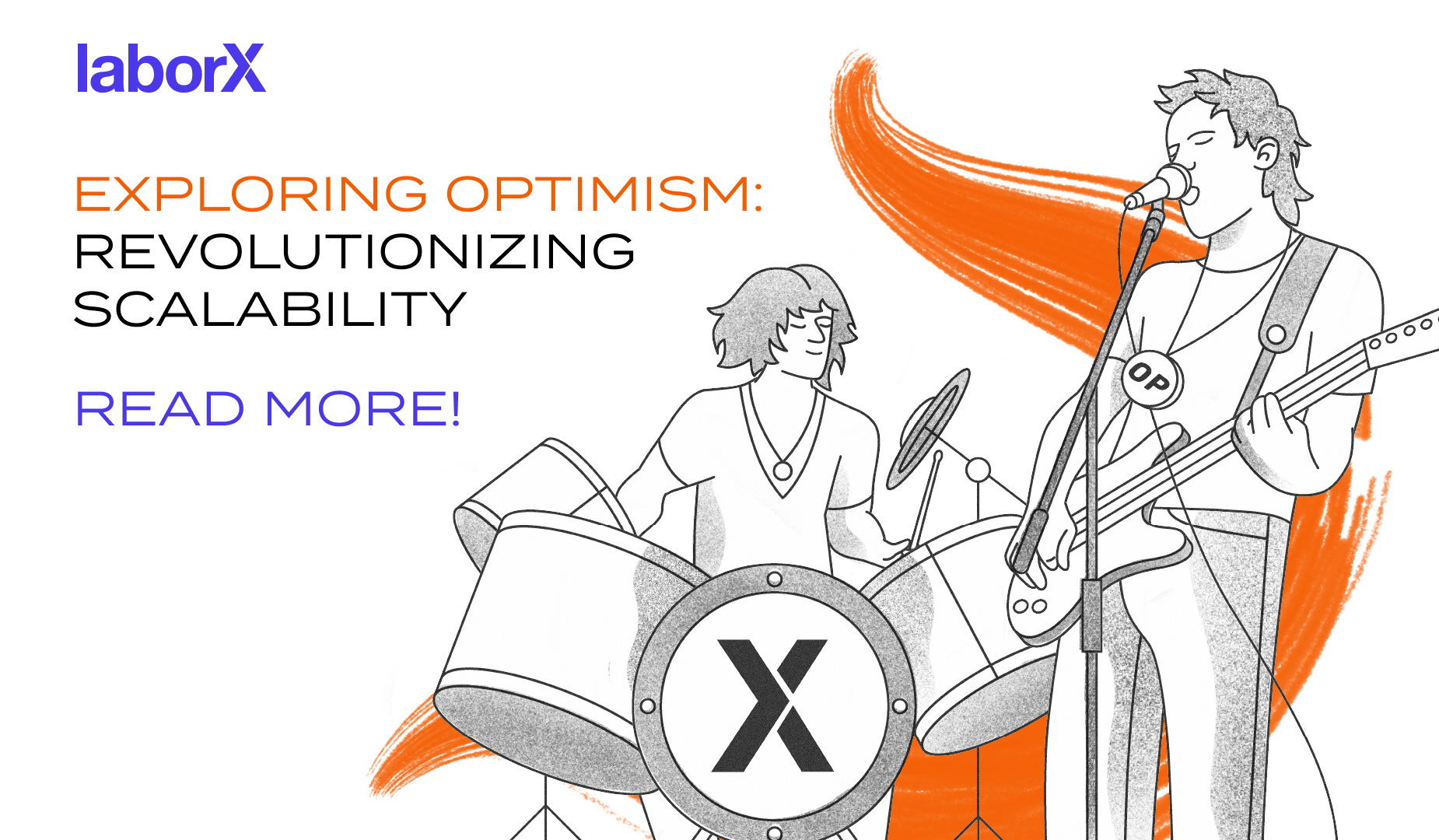As a blockchain-powered work platform, LaborX connects employers with freelancers and job candidates. In the process, it solves a number of key issues – not just in the recruitment space, but for society as a whole.
Employment is a major part of almost every adult’s life. Most of us will spend around a third of every Monday to Friday in paid employment, or around 40 hours per week – more than many of us sleep.
And yet, although employment is such an important and ubiquitous experience, there are many problems, inefficiencies, and abuses that surround it. These not only cause difficulties for individuals and their families, but have knock-on effects for communities and for society as a whole.
LaborX is a decentralised recruitment platform that enables employers and candidates to connect, organise work, and get paid easily and efficiently. LaborX uses blockchain-based digital work contracts and cryptocurrency payments to streamline the process of arranging work while avoiding the points of trust and inefficiency that plague centralised freelancer platforms. The result is a simple, accessible, and powerful service that anyone can use to access work and talent, no matter where they are on the planet.
In providing this functionality, LaborX does more than act as a recruitment platform: it also addresses a number of critical social issues.
Access To Work
A large number of studies have shown that work is good for your health. This is hardly surprising, since adequate employment enables people to earn enough money to maintain a decent standard of living – including warm, safe housing, a basic level of nutrition, and other necessities.
Moreover, employment is a significant contributor to good mental health, since it provides identity and purpose, and a range of social interactions and opportunities. Conversely, unemployment is associated with poor health and wellbeing. A UK study suggests that worklessness and absence are estimated to cost the country around £100 million ($125 million) every year – a price tag which is borne by the taxpayer, representing a significant economic and social problem.
Too often, access to employment is an accident of geography. Certain locations become hubs for particular industries, or simply offer better overall opportunities. Smaller towns and rural areas can easily be left behind. Those who live in these places lack good prospects for employment, and consequently are forced either to move away to find work, or to settle for a lower standard of living. If they move, they leave families and networks of support, undermining the health of those communities. Older people who are left behind may suffer as a result of losing those family members.
All of this can lead to a vicious cycle, where towns and cities thrive, but rural locations become less attractive, resulting in a falling population – especially young people – meaning they can support even fewer businesses, so yet more people leave.
Freelancer platforms – particularly global, decentralised ones like LaborX – allow anyone to access work, no matter where they are in the world, or where an employer is based. This allows people to earn a living even if there are no suitable or well-paying jobs in their hometown. So long as they have an internet connection, anyone who is capable of doing a job can apply, whether it’s a full-time position, or a freelance role to fit around existing work and commitments.
Access To Crypto
The ability to access cryptocurrency may sound like a luxury, but for many people around the world, it can mean the difference between prosperity and poverty.
Much of the population in the US and Europe will be too young to remember serious inflation, but for other countries, it’s a long-term issue. Argentina has seen bitcoin use soar as the population looks for ways to store value amid inflation rates of 100%. Several countries have even higher inflation, and many more suffer from rates over 50%.
There are often few alternatives to using the local currency. There is often an informal market in US dollars – the world’s reserve currency – since these hold their value better than anything else. The ability to earn dollars, including stablecoins, offers a lifeline for those who would otherwise see their pay cheques evaporate over the course of just a few days or weeks.
In other cases, particularly for those in wealthier countries, who have some spare cash at the end of the month, major cryptocurrencies offer an alternative to saving in USD, EUR, GBP, or other fiat currencies – all of which are losing their purchasing power, albeit not as fast as others. Bitcoin (BTC), known as ‘digital gold’ due to its fixed supply and widespread adoption, is attracting attention as a hedge against inflation. Ethereum (ETH), with its deflationary dynamics and ‘Ultrasound Money’ narrative, is also an interesting and attractive option.
Although acquiring digital assets is getting easier all the time, it is not always a straightforward process. The most common means is to convert fiat to crypto using an exchange. However, this requires several things. Firstly, the user must have spare funds with which to buy crypto. Many people will not have that discretionary income. It also requires access to a crypto exchange, a suitable method of payment, and identity documents to complete KYC. Even in so-called developed countries like the US, there are millions of unbanked and underbanked people. Around the world, an estimated 850 million people do not have any identity documents.
Working and getting paid in crypto offers an alternative to buying digital assets with an existing income. Not only is this an additional way to earn, but it’s a means of acquiring digital assets directly – without the time, cost, complexity and regulatory overheads of converting funds using an exchange. It’s the most efficient trade possible: time and expertise, in return for crypto.
LaborX supports a wide range of different crypto tokens and stablecoins, on Ethereum, Polygon, and Binance Smart Chain, so users can earn in USD and AUD-backed coins, as well as ETH, BNB, BTC-backed tokens, and other assets.
Equal Pay
The Glass Ceiling is real. It’s well documented that women and minorities are paid less and find it harder to access the best employment opportunities. The problem varies from country to country (Scandinavia is considered the most equal) and across industries, but the reality is that white, male employees still earn the most on average. In the US, for example, women account for 56.8% of the total labour force, but hold only 29.1% of executive positions. There are just 41 female CEOs within the Fortune 500, around 8%. In the EU, the gender pay gap is around 13%: women are paid on average an eighth less than men. For those of the same educational level, and even those in the same employment position, women and minorities earn less.
LaborX effectively addresses this inequality. Employers and employees don’t need to know who they are working with, and rates of pay are set in advance, on a per-job basis. Gender and race never enter the equation; all that matters is that the candidate can do the job competently. Here, employers select workers on the basis of their portfolio, previous work, and feedback – not based on what they look like, where they were educated, or where they live. It’s a truly meritocratic system that rewards hard work and talent: the free market at work.

Work/Life Balance
Conventional employment is not ideal for maintaining a healthy work/life balance. Hours can be long, and even when they’re not, commuting can stretch the day out with time wasted sitting in a car or on public transport. In both the US and Europe/UK, commuting adds almost an hour to the working day for those who travel to their workplace. Even when at home, emails and messaging apps mean that work and family time blur together, and holidays can be anything but restful.
Remote work can improve this situation and foster a healthy work-life balance, so long as workers (and employers) draw clear boundaries. Setting a clear start and end to the working day gives employees the best of both worlds: they can avoid lengthy commutes and gain additional time at home, while ensuring that work is confined to specific hours.
For independent employees who are used to managing their own time, working at home tends to be far more productive than doing their job at the office. They are able to avoid the noise and distractions of office life, and only attend meetings which are truly important, rather than the ones they are included in unnecessarily that simply waste their time. By focusing more on the work they are contracted to do, they can be significantly more productive, getting more done in less time. This leads to greater motivation and job satisfaction. Additionally, being at home allows them to work around childcare, school runs and other commitments, all of which contributes to better mental health and a culture that does not value work above all else.
More Sustainable Businesses
It’s not just employees who stand to benefit from platforms like LaborX. Businesses can improve their sustainability across a number of key areas, meaning they are more likely to thrive over the long term.
- Financial overheads: Companies that operate a partial or complete remote work policy can save a significant amount of money on the fixed costs that conventional businesses have: rent for premises, water, electricity, internet and other utilities, business rates, furnishings, and other items. These all add up to a sizeable percentage of expenditure. If a business can reduce or eliminate these outgoings, it will have more money to spend on acquiring and training the best people, and is better able to withstand a downturn in the market with squeezed revenues.
- Environmental footprint: Remote businesses have a reduced carbon footprint, since they do not need to heat and light their premises, and their employees do not need to commute to the office.
- Relational capital: By facilitating a better work/life balance, remote businesses enable stronger networks of relationships in families and local communities – combating the problem of rural degeneration. This is also good for those businesses, since employees who are happy with their working arrangements are more likely to be loyal to the company and less inclined to move on.
The issue of treating staff well is an important one, since unhappy employees are more likely than ever to move on. High rates of staff turnover are a perennial problem in a ‘tight’ labour market, when there is high demand for employees. The costs associated with recruiting staff to replace those who have left are surprisingly high, often totalling tens of thousands of dollars per candidate in the tech sector. This is even more of an issue in Web3, where there is a shortage of experienced professionals, and talent is at risk of being poached by other companies.
Global Companies And Workforces
Finally, LaborX enables companies to tap into a global labour market, accessing talent from all around the world and connecting with the very best candidates, no matter where they are based. This, in turn, allows companies to be fully remote, and to locate themselves in favourable jurisdictions.
This is becoming an ever more-important issue for crypto companies. While they may have offices in a location that is good for recruitment, that does not always mean it’s a good place for a crypto business. This is particularly true of the US, where the authorities are taking a harsh line against crypto companies and making it difficult for them to operate. By domiciling a business in a crypto-friendly jurisdiction, such as Canada or Australia, but maintaining a remote workforce, companies can enjoy the best of both worlds.
Find out more about what LaborX can offer remote Web3 businesses: hire freelancers for Gigs – clearly-defined, fixed-price tasks – upload custom Jobs for freelancers to browse, or use the new full-time jobs board to connect with candidates looking for full-time positions.






